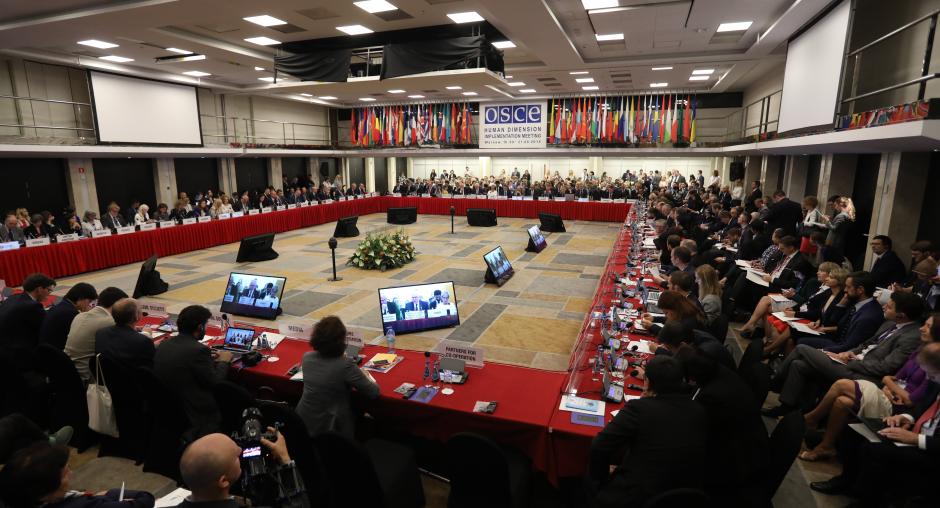Today’s security challenges make defence and promotion of human rights more important than ever, speakers say at opening of OSCE conference in Warsaw

WARSAW, 10 September 2018 – The need to address today’s security challenges means the defence and promotion of human rights are more important than ever, speakers said today at the opening of the OSCE Human Dimension Implementation Meeting in Warsaw.
In a direct reference to the three special themes of the conference, they said that the fact that times are difficult cannot be used to justify infringements on fundamental freedoms, nor to provide an excuse for racism, intolerance and discrimination. Instead, a human rights focus is more important than ever to ensure effective policies and solutions.
“We live in an increasingly unpredictable environment. The OSCE has also been confronted with many challenges,” said Jacek Czaputowicz, Foreign Minister of Poland. “In this difficult time, we should not forget what the OSCE’s comprehensive security concept is all about. Human rights are the foundation on which we should build global peace and security.”
Ingibjörg Sólrún Gísladóttir, Director of the OSCE Office for Democratic Institutions and Human Rights, which is responsible for the annual organization of the event, said: “There is a need for participating States to renew their efforts to counter rising trends of intolerance and discrimination. Once we go down the slippery slope of allowing intolerance and discrimination to thrive, no group – and I repeat, no group – can assume that they are immune once the principle has been eroded.”
Some 1,800 government representatives, human rights activists and experts are gathering in Warsaw for the two-week meeting, where they will review the progress made by governments in implementing their commitments in the fields of human rights and fundamental freedoms, democratic institutions and governance, and tolerance and non-discrimination.
“HDIM shall remind us that the protection of human rights goes beyond mere domestic considerations. On the contrary, it is an essential factor for the development of co-operation between States and for their peaceful coexistence,” said Alessandro Azzoni, Chairperson of the OSCE Permanent Council and Italy’s Permanent Representative to the OSCE.
George Tsereteli, President of the OSCE Parliamentary Assembly, highlighted that civil society participation was a vital characteristic for the Warsaw meeting.
"All of us gathered here today must recognize that a pluralistic and strong civil society is indispensable to a functioning democracy and vital to promoting and protecting human rights,” Tsereteli said. “This open dialogue on controversial issues must continue and opposing views must be allowed to be heard by all in order to successfully work together towards implementing our OSCE commitments."
In his keynote address, Michael O’Flaherty, Director of the European Union Fundamental Rights Agency, further stressed the central role of civil society.
“Any comments on truly effective responses to our human rights challenges must make reference to the important role of civil society. Without NGOs and other civil society actors operating on the ground and in networks, within and across borders, there would be much less information and input available to decision makers,” O’Flaherty said. “Similarly, the activity of such groups is vital to the effective implementation of human rights, as they often take the lead in providing supportive action, including for victims.”
In addition to regular working sessions, almost 90 independent side events will be held, focusing on specific human rights concerns and country situations.
